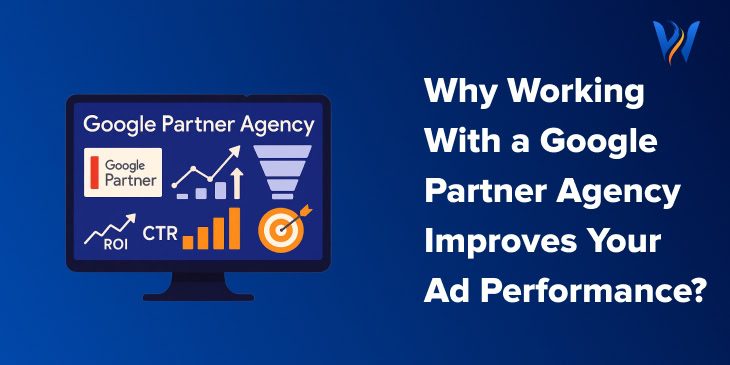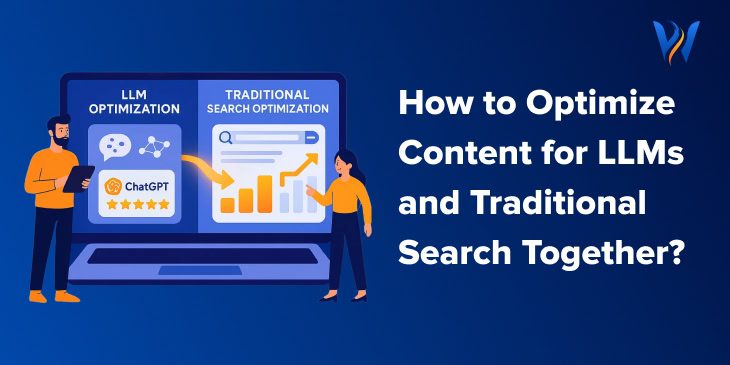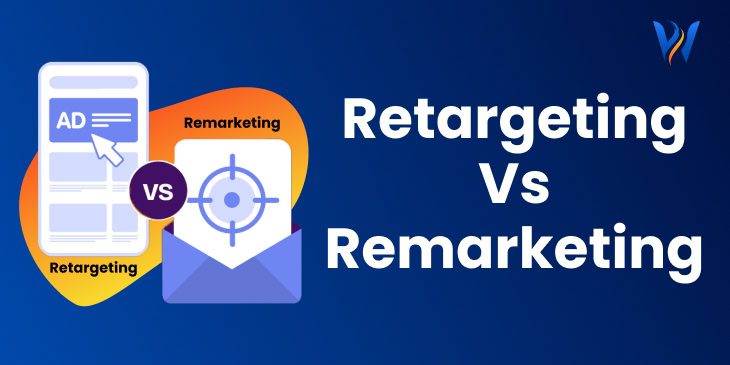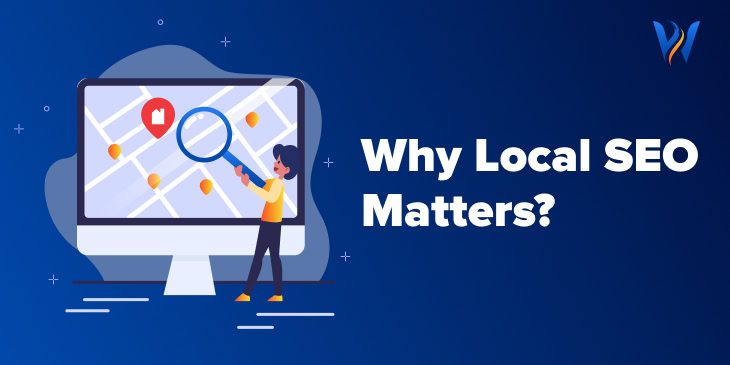Running an agency can be exciting. You get to help businesses grow, launch new campaigns, and see results come to life. But there’s a challenge too: you can’t do everything yourself. That’s where working with another company under your brand can help.
The global market for white label products is valued at nearly $50 billion each year, with around 2 million potential customers.
Choosing the right white label digital marketing partner makes it possible to offer more services, save time, and focus on growing strong client relationships.
Before you jump in, it helps to understand what “white label” really means, why agencies often look for this kind of support, and how trust plays a big part in making the right choice.
What Does “White Label” Mean?
When people talk about “white label,” they mean one company does the work, but another company puts its name on it. Think of it as teamwork behind the scenes. The client only sees your agency’s name, not the partner who actually delivered the service.
For example:
- A partner might build a website, but your agency logo goes on the project.
- A partner may manage ad campaigns, but the client only gets reports from your team.
- A partner could write blogs or post on social media, but it’s all branded under your agency.
This setup is very common. Many agencies use it to expand services without hiring new staff. It also helps when you don’t have the skill set in-house for certain jobs.
Common white label services include:
- Search engine optimization (SEO)
- Pay-per-click ads (PPC)
- Content writing and blogs
- Social media posting and ads
- Website design and development
The big idea is simple: you can deliver more to your clients without having to do every task yourself. It gives your agency more flexibility, more service options, and often faster results.
But it’s not only about adding services. It’s also about scaling smartly. You can keep overhead low while still competing with bigger agencies. For small and mid-sized agencies in the USA, this can be a major advantage.
In short, “white label” means you still control the client relationship, the branding, and the communication. But you let experts handle the heavy lifting behind the scenes. That’s why so many agencies consider it a smart way to grow.
Why Agencies Look for a White Label Partner
Agencies turn to white label partners for many practical reasons. It usually comes down to saving resources, expanding services, and staying competitive.
Here’s why agencies look for a white label partner:
- Save Time and Money
Hiring and training a full team takes money, office space, and a lot of management. With a partner, you only pay for the services you need. That means no payroll taxes, no benefits, and no long hiring process. - Expand Services Quickly
Picture a client asks for help with PPC ads, but your agency only offers SEO. Instead of turning them away, you can use a partner. They deliver the PPC work, and your agency gets credit. It’s basically flipping a switch to add new services overnight. - Handle Extra Work
Busy season? A white label partner can take overflow work. For example, during holiday campaigns, you might have too many ad accounts to manage. Instead of telling clients to wait, you can let your partner handle some of it. - Stay Competitive
Big agencies often have full teams for every service. Smaller agencies can compete by working with trusted partners. You don’t need to be the biggest to offer strong results—you just need the right support. - Focus on Clients
When you’re not stuck managing every detail, you can focus on building relationships. Strong client service often makes the difference between keeping or losing an account.
In short, agencies look for white label partners because it makes business smoother. It keeps costs low, improves service options, and helps agencies grow without the stress of handling everything alone.
A Big Question: Can You Trust the Partner?
This is the heart of the decision. Choosing a white label partner is really about trust. They are doing the work under your name. If the work is strong, your agency looks good. If the work fails, your reputation takes a hit. That’s why trust matters so much.
Here are key things to check before saying yes:
- Skills and Proof: Ask for examples of past work. Look for case studies, reports, or client results they can show.
- Clear Communication: Do they answer emails fast? Do they explain things clearly? You need a partner who will keep you in the loop.
- Transparency: Good partners show you how they do the work. If they hide methods or give vague answers, that’s a red flag.
- Reporting: Make sure they can send reports branded with your agency logo. This way, clients see professional updates that look like they came from you.
- Data Safety: Ask how they handle sensitive client data. Strong partners will have clear privacy practices and security measures in place.
A few red flags to watch for:
- Promises of instant rankings or “guaranteed” results in SEO.
- Slow or unclear responses to your questions.
- No references or proof of past performance.
- Hidden fees or unclear contracts.
Trust also builds with small steps. Many agencies start with one test project. This allows you to see how the partner works before sending more clients their way.
The truth is simple: the right partner makes your agency look professional and capable. The wrong partner can cause stress and damage your brand. So before you sign, take the time to check, test, and build trust step by step.
How to Choose the Right White Label Digital Marketing Partner for Your Agency
Finding the right partner can feel like a big task, but breaking it into steps makes it much easier. Your goal is to work with a team that adds value to your agency, keeps your clients happy, and helps your business grow. Let’s walk through the key things to look for when choosing a partner.
1. Look at Their Skills and Services
A good partner should have strong skills in the areas you need. Every agency is different. Some want help with search engine optimization, while others may want paid ads, web design, or content writing.
Examples of common services include:
- Search engine optimization (SEO) for better search rankings.
- Pay-per-click ads, often called white label PPC, for fast traffic and leads.
- Social media ads and posting for brand awareness.
- Website design and development to keep clients online and updated.
- Content marketing, like blogs and newsletters, for steady engagement.
Ask for a clear list of what they provide. Some partners offer a wide range of digital services. Others focus only on a few. Make sure their skills match the services you want to deliver to your clients.
2. Check Their Track Record
You want proof that the partner can deliver. A professional white label marketing agency should be able to share examples of past work. They may show you reports, case studies, or data that highlights what they achieved.
Some things to ask for:
- Before-and-after results from campaigns.
- Reports showing increased traffic or lower ad costs.
- Client retention rates and how long customers stayed with them.
References from other agencies can also be helpful. Talking to someone who has used their services can give you honest insight.
3. Review Their Reporting and Communication
Clients expect updates. That means your partner must give you reports that are easy to share. Many partners offer white-labeled dashboards where your logo appears on all reports. This makes the work feel seamless to your clients.
Good reporting should show:
- Key performance indicators (KPIs) such as leads, clicks, or sales.
- Clear explanations of what was done each week or month.
- Honest notes about what worked well and what needs improvement.
Also, pay attention to how they communicate with you. Do they respond to questions quickly? Do they explain things in plain language? A reliable white label marketing company makes it easy for you to stay informed and pass along updates to your clients.
4. Understand Their Process and Workflow
Every strong partner has a process. This is the step-by-step way they plan, launch, and monitor campaigns. Ask them to explain their workflow. A good answer shows that they have structure and quality checks in place.
For example, a solid process might include:
- Discovery: learning about the client’s goals.
- Planning: outlining a campaign strategy.
- Launch: setting up ads, content, or SEO updates.
- Monitoring: checking performance daily or weekly.
- Reporting: sending clear updates each month.
- Adjustments: improving campaigns based on data.
When a partner follows a clear process, you can trust that work will stay on schedule and meet expectations.
5. Make Sure They Use Safe and Trusted Methods
Not all marketing methods are safe. For example, in SEO, some companies buy cheap links or use risky tricks to rank faster. These shortcuts can harm your client’s website in the long run.
Ask the partner how they earn results. A good white label PPC agency, for example, should explain how they structure campaigns, manage budgets, and adjust ads to reduce costs. For SEO, they should focus on quality content and natural link building.
If their answers feel vague or too good to be true, be cautious. The best partners follow trusted practices that keep your clients safe and satisfied.
6. Compare Pricing and Value
Price matters, but it’s not the only factor. A partner may charge less, but if the results are weak, your clients will not stay. Look at value instead of just cost.
Things to ask:
- What is included in each service package?
- Are there hidden fees for reports, calls, or changes?
- Do they charge by the hour, per project, or on a flat monthly plan?
A good marketing white label partner will be open about costs. They will explain how their pricing works and what you get for each dollar spent.
7. Test With a Small Project First
Trust builds over time. Instead of handing them your biggest client right away, start with one smaller account or project. This allows you to:
- See how they handle deadlines.
- Review the quality of their reports.
- Check how they communicate during challenges.
- Measure early results.
A small test helps you decide if they are a good long-term fit without putting your reputation at risk.
8. Protect Client Data and Privacy
In white label digital marketing, data is very important. You’ll often share logins, customer lists, or campaign details with a partner. You must make sure that the information is safe.
Ask questions like:
- How do you protect client data?
- Do you have a privacy policy in writing?
- Who has access to accounts and sensitive information?
A reliable white label digital marketing agency will have clear answers. They should use secure systems, protect data with strong tools, and limit access to only the people who need it.
9. Match Culture and Work Style
Skills and reports are important, but so is culture. Do they treat you with respect? Do they seem flexible and willing to adjust? Do they share the same values as your agency?
If you like how they work with you, chances are you’ll enjoy the partnership long-term. If you feel uneasy during early calls, trust your gut and keep looking.
10. Put Agreements in Writing
Finally, protect yourself with a contract. A strong agreement sets clear rules and avoids problems later.
Important things to include:
- Scope of services (what is and isn’t included).
- Payment terms and refund rules.
- Non-solicitation clauses so they cannot approach your clients directly.
- Data protection agreements to safeguard privacy.
- Exit terms if you need to end the partnership.
Good white label digital marketing partners will be comfortable with contracts. If a partner avoids signing or pushes back, consider it a warning sign.
Choosing a partner may take some time, but the effort is worth it. A strong partner adds new services to your agency, saves you time, and builds client trust.
Checklist
0 / 9When you follow these steps, you’ll be in a strong position to pick a partner who helps your agency grow with confidence.
Conclusion
Working with the right white label digital marketing partner can help your agency grow faster, save money, and keep clients happy. It starts with knowing what “white label” really means, why agencies turn to partners, and how trust plays a key role in the relationship.
When you choose wisely, you gain a team that supports your goals and helps you serve clients with confidence.
Want to explore this path for your agency?
Reach out to Web India Inc. today and take the first step toward building a strong partnership!







